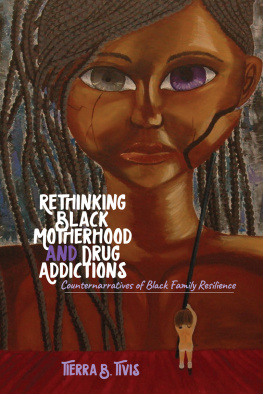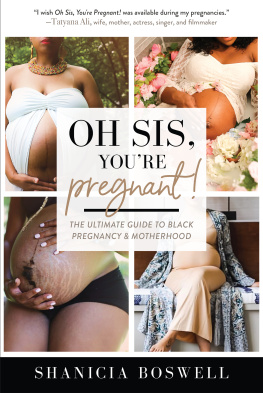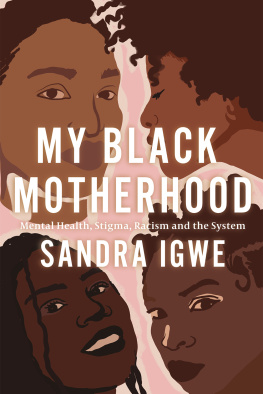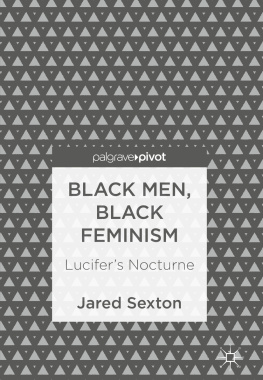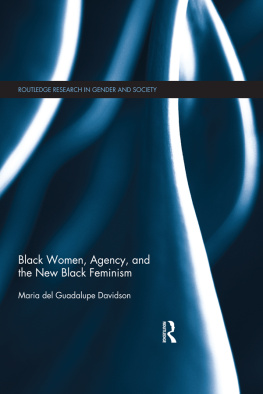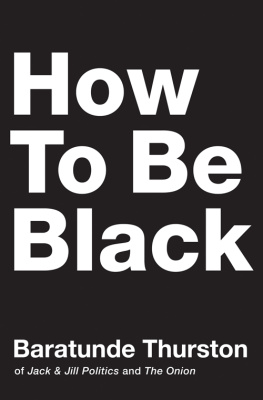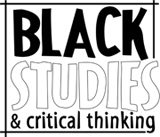Contents
Page List
Rochelle Brock and Cynthia Dillard
Executive Editors
Vol. 106
The Black Studies and Critical Thinking series
is part of the Peter Lang Education list.
Every volume is peer reviewed and meets
the highest quality standards for content and production.
Tierra B. Tivis
Rethinking
Black Motherhood and
Drug Addictions
Counternarratives of
Black Family Resilience
Library of Congress Cataloging-in-Publication Data
Names: Tivis, Tierra B., author.
Title: Rethinking black motherhood and drug addictions: counternarratives of
black family resilience / Tierra B. Tivis.
Description: New York: Peter Lang, 2018.
Series: Black studies and critical thinking; vol. 106 | ISSN 1947-5985
Includes bibliographical references and index.
Identifiers: LCCN 2017038559 | ISBN 978-1-4331-3503-3 (pbk.: alk. paper) |
ISBN 978-1-4331-3504-0 (hardback: alk. paper) |
ISBN 978-1-4331-4963-4 (ebook pdf) | ISBN 978-1-4331-4964-1 (epub) |
ISBN 978-1-4331-4965-8 (mobi)
Subjects: LCSH: African American families. | African American mothers. |
African American mothersSubstance use. | Women drug addicts
Family relationshipsUnited States. | African American women
Family relationships.
Classification: LCC E185.86.T5135 | DDC 306.85/08996073dc23
LC record available at https://lccn.loc.gov/2017038559
DOI 10.3726/b11813
Bibliographic information published by Die Deutsche Nationalbibliothek.
Die Deutsche Nationalbibliothek lists this publication in the Deutsche Nationalbibliografie; detailed bibliographic data are available on the Internet at http://dnb.d-nb.de/.
2018 Peter Lang Publishing, Inc., New York
29 Broadway, 18th floor, New York, NY 10006
www.peterlang.com
All rights reserved.
Reprint or reproduction, even partially, in all forms such as microfilm, xerography, microfiche, microcard, and offset strictly prohibited.
ABOUT THE AUTHOR ( S )/ EDITOR ( S )
TIERRA B. TIVIS holds a PhD in Curriculum and Instruction from the University of Illinois at Urbana-Champaign. Her teaching and scholarship focuses on early childhood, early childhood special education, and Black families and resilience from a Black Feminist and Critical Race perspective.
ABOUT THE BOOK
Rethinking Black Motherhood and Drug Addictions: Counternarratives of Black Family Resilience offers a unique perspective on the complexities of being a Black mother addicted to crack, powder cocaine, heroin, and crank. Qualitative interviews provide rich narratives from five Black mothers challenging negative controlled images and stereotypes of Black motherhood and drug addiction. Using Black Feminist Thought, Critical Race Feminism, and Resilience as conceptual frameworks, this book confronts hegemonic constructions of Black mothers and their children within the context of drug addictions. Particular attention is focused on using the mothers self-definitions of struggles and family resilience to dismantle the negative controlled images of the junkie and the crack ho and her crack baby.
The mothers in this book speak truth to their experiences with motherhood and addictions to some of the most powerful street drugs that explicitly defy the junkie, crack ho, and crack baby images. The book also addresses tensions existing within researcher-participant relationships and nuances unique to research with Black mothers in recovery. Personal lessons learned and challenges experienced during the research process are highlighted as Tivis shares dilemmas of self-reflections of positionality, accountability and use of language.
Rethinking Black Motherhood and Drug Addictions contains important implications for research and practice in education and across other disciplines concentrating on mothers and children from racially diverse backgrounds. This book will be relevant for both undergraduate and graduate students and academics within these disciplines. Rethinking Black Motherhood and Drug Addictions will be of interest to advanced pre-service teachers and other disciplines engaging in clinical and professional practice with addiction and with families.
THIS EBOOK CAN BE CITED
This edition of the eBook can be cited. To enable this we have marked the start and end of a page. In cases where a word straddles a page break, the marker is placed inside the word at exactly the same position as in the physical book. This means that occasionally a word might be bifurcated by this marker.
| v
To my parents who taught me to be fair and remain true to myself, sista-friends who supported me along this journey, and my baby girl, Tatiyana. To all Black mothers and babies who were treated like or ever felt like just another junkie, crack ho or crack baby. May you continue to be resilient and dispel the myth.
| ix
This book is truly a village effort with influence and support from many whom I would like to personally thank for their contributions to the completion of this book. First, I would like to thank the mothers who graciously shared their life stories with me. I am truly inspired by their strength, faith, and hope for a better tomorrow. A great deal of gratitude goes to Drs. Eloise Jackson and Ollie Bowman from Hampton University for their guidance and providing the foundation for my academic journey. Thank you also to my Hamptonian sisters and Shawn Baccus Featherstone, Mavis Roberts Lee, Karen Vaughan Palmer, and Beth Freeman Wilson for always having my back. Miles keep us apart but our sisterhood and love for Our Home By the Sea always keeps us close at heart. I am also indebted to my circle of sista girlfriends in the academy for steadfast supporting and encouraging me to finish this project. They are: Drs. Carla McCowan, Eboni Zamani-Gallaher, Dawn Hinton, Barbara Jean J. Jones, Dalia Rodriquez, and Thandi Sule. I am so grateful for the sisterhood and continuous love and support from Tatiyanas Aunt Jackies: My homegirl, Dr. Jacque Bowman for her wisdom and guidance; Dr. Jackie Bussey for helping me find my way back home to Michigan; and Jacki Brown and Jackie Brandon for giving me a space to find peace once again at the shore.
I would like to also thank Drs. Robin Jarrett, Lawrence Parker, Arlene Torres, and Assata Zerai for their invaluable knowledge, guidance and support ix | x doing work with Black mothers and drug addiction. I also appreciate the mentorship and support of Violet Harris, Arlette Willis, Susan Fowler as well as Susan Noffke, who has transitioned on. Dr. Emery Petchauers feedback and support has been priceless and I am forever grateful for him encouraging me not to give up on sharing the mothers stories. I am also extremely thankful for Peter Langs series editor, Rochelle Brock, her guidance and continued support throughout the completion of this book. Also, Kathryn Harrison, Peter Langs acquisitions editors assistance with this book is much appreciated.
A special thank you to Corine Smith, who truly exemplifies fictive kin and embodies what it means to be a play mother, you are forever treasured in our family. To my play aunts Lena T. Fulton, Barbara-Ann Hinksman, Rowena Taylor, and Shirley Viera and godsisters Ann Turpin Williams and Cheryl Sampson Ramsey, your support was invaluable. This book would not have been completed without their love, listening ear, guidance, and encouragement. Special acknowledgement to my parents Bernardine Tivis Carter and Harold Bernard Tivis who have transitioned on but live forever in my heart. Last but not least, thank you to the best daughter in the world, Tatiyana, who has been so patient when I was always on the computer.

